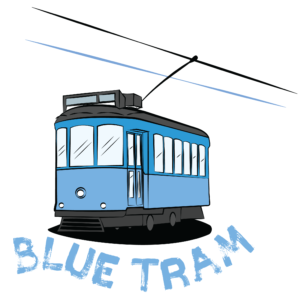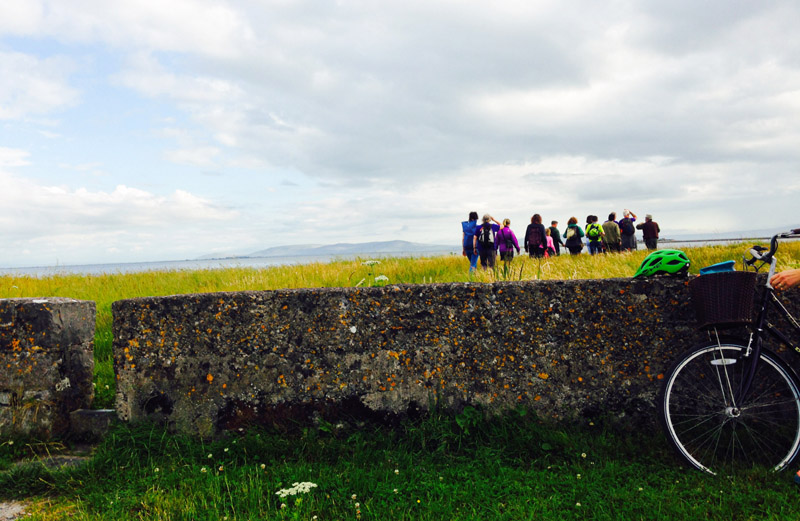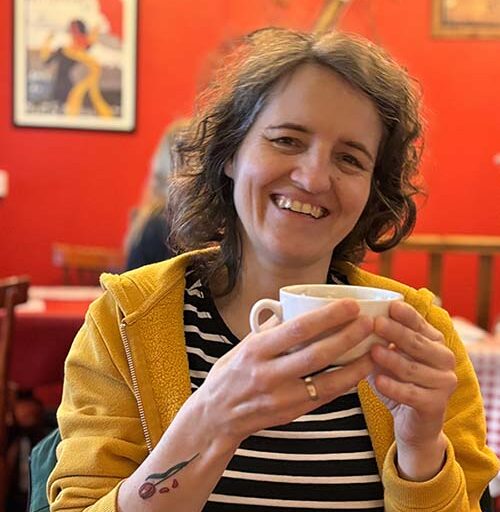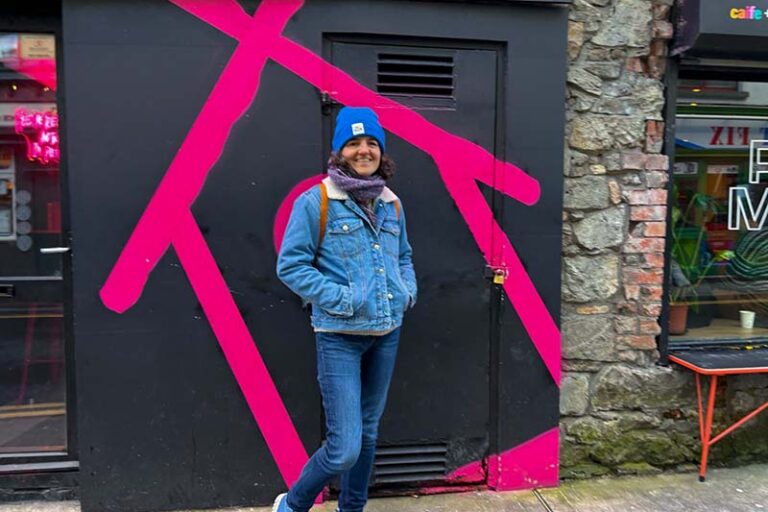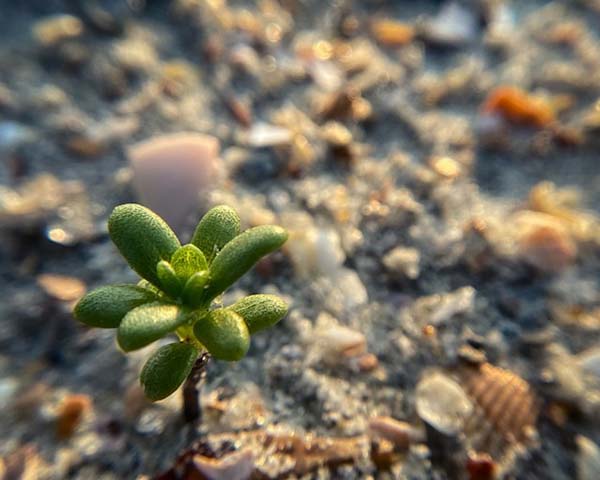This post is also available in:
 polski (Polish)
polski (Polish)
On a summer afternoon, we met at Nimmo’s Pier in Galway. River Corrib in Claddagh Quay flowed calmly and was a deep blue color. We took bags and litter keepers, which were brought by Tiarnan McCusker – Galway City Environmental Awareness Officer. I had gloves from a few previous coastal clean-up with Wave Makers. We parked our bikes next to the meadow and moved towards blue and green.
The Claddagh beach was illuminated by the sun, but there was also a lot of waste shone on. Abandoned masks, pieces of fishing ropes, towel scraps, sanitary towels, plastic forks got tangled in the seaweed and you could spend half a day untangling them all. Discarded beer cans and plenty of bottle caps lay in the nearby grass. I even found a broken plate in the sand. When I picked up the chunks of glass with my hand, I imagined how often birds and other animals mistake rubbish for food or injure themselves, and they cannot nest in the tall grass. I thought also that it is great to clean up the beaches regularly, but without changes in the source like a system of governments, large corporations or smaller companies and in our awareness the rubbish will return like boomerangs.
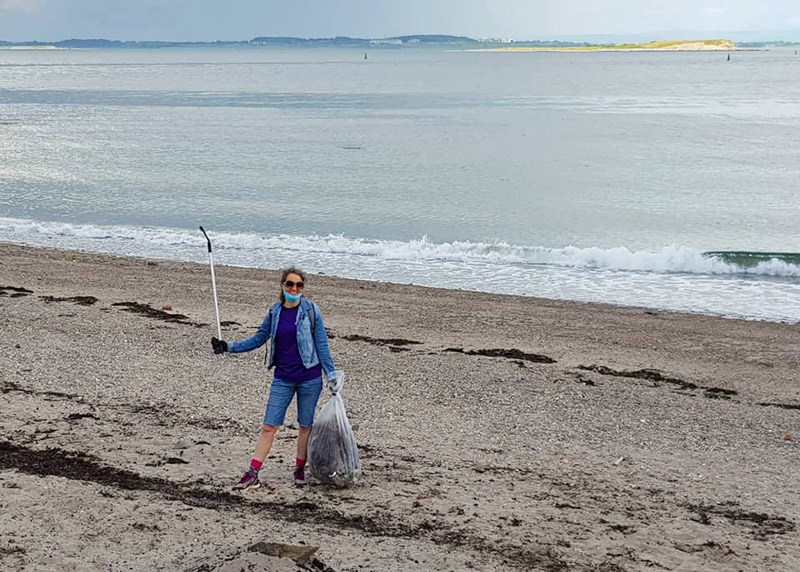
Small piece of the waste mountain
Recently, a friend of mine confessed to me that she doesn’t want to come back to Ghana. Because the rubbish was flying right in her face on the beaches, and while she was walking in the beautiful turquoise ocean, plastic stuck to her legs. The average tourist will not even think that not only the Ghanaians are responsible for this situation. Also other countries, including Europe. Each year, more than 2.58 million tonnes of raw plastic are imported into Ghana, 73% of which ends up as waste. Only up to 5% of plastic waste is recycled, the rest either ends up in the environment or ends up in landfills, and almost 30% ends up in the ocean. While Ghana takes out its electronic trash to others countries or the mountains of them grow in the cities.
Importing rubbish is a regular activity around the world. Their transport across the border is always caused by the difference in processing prices, various legal restrictions, or levels of control by public institutions.
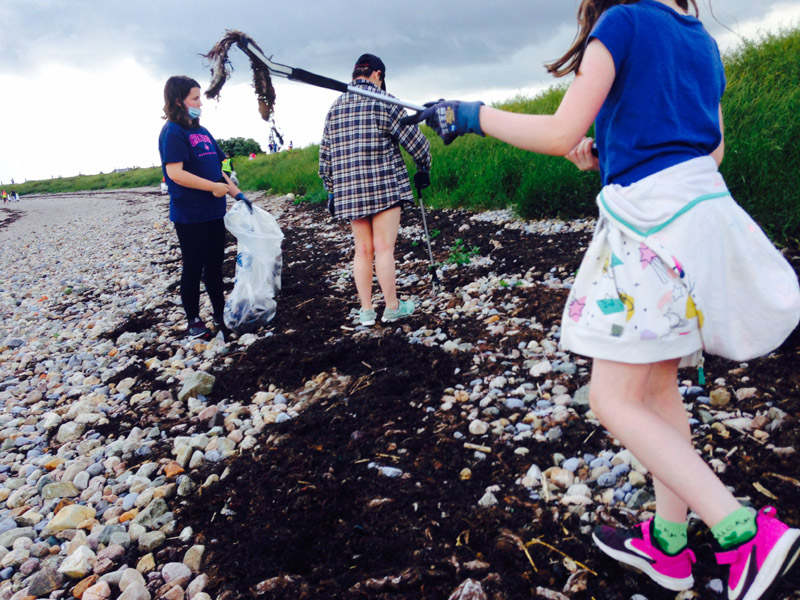
So, beach clean-up is just a small tip of a mountain of litter. But I want to do it because this little action can be my power. However, it is important paying attention to the climate change campaign organized by the international groups of Extinction Rebellion. Various types of protests and civil disobedience actions are aimed at drawing the attention of the rulers and forcing changes in the policy of climate change, and loss of biodiversity.
What birds live in your area?
As you know, I love observing my neighbor birds. So, it was a big pleasure to attended an ornithology workshop led by Thomas Cuffe, after clean-up. Although Nimmo’s Pier on the Claddagh Quay with boat wrecks, navy blue Corrib, and landmark view of colorful houses is a popular place in our city, I looked at them from a completely different perspective. I could notice that it is a haven for numerous birds. And for the first time in my life, I realized that there are several types of gulls, and one – slatey-backed gull– flew to Galway from Japan. In 2014, Thomas first noticed it. He is an experienced birdwatcher, and a great photographer, so you can follow his discoveries on the blog.
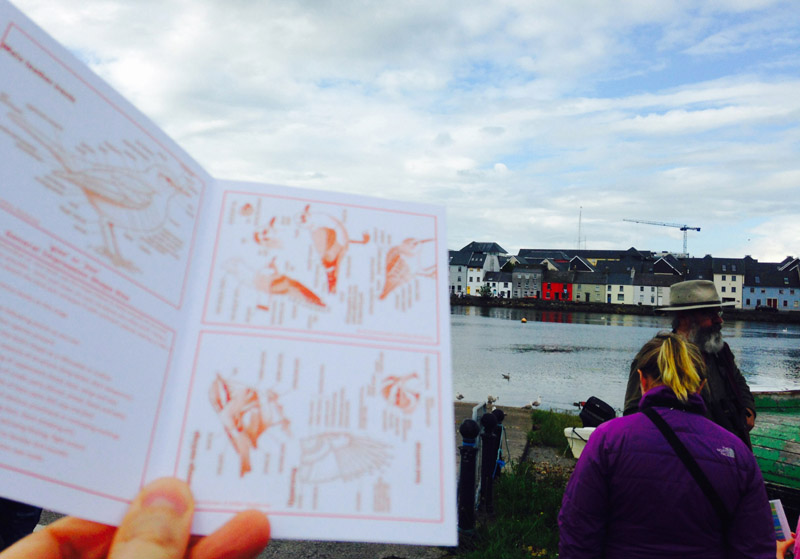
But, not only gulls and swans eat their meal on the concrete driveway leading into the river. There are also pigeons, swallows, and sparrows. And when a heron lands on a cobalt surface, fishermen know that there is a lot of fish there. We also went to a meadow by the coast and watched the joyful birds fly. They dance with grace. Some of them can sleep during the flight, and wake up quickly when they take to the sky, again. We also got a list of birds that occur in Galway, and we can learn the seasons to watch them.
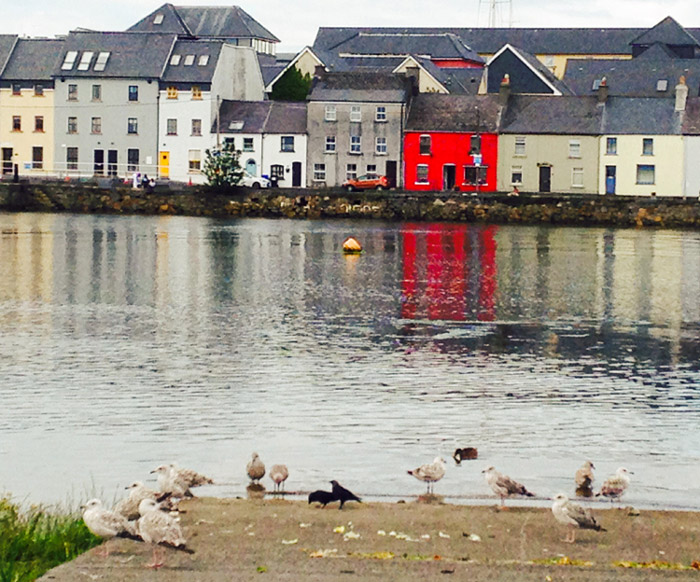
However, according to Thomas’s observations, there are fewer and fewer birds in Galway and all of Ireland. It is influenced by climate change, but also insect populations are collapsing due to farming practices where insecticides are being sprayed without due care.
Thanks to such actions as Love Your Beach with Wave Makers, and nature observation workshops, the alarm goes on in me and displays an hourglass with the Extinction Rebellion logo. There is no time to wait, we must care about the environment immediately.
If you would like to read more about nature care in Galway, check out these articles: Rubbish Open Wide Their Jaws, How To Protect the Environment In Our Local Area?
Source of Ghana statistics: Borgen Magazine.
